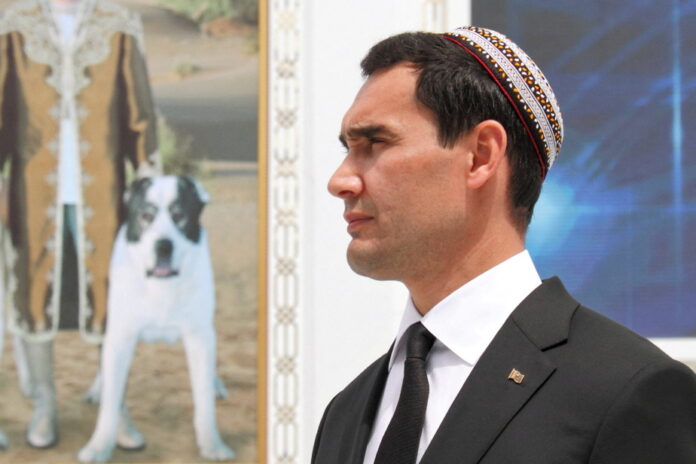(Ashgabat) Turkmenistan elected its deputies on Sunday in the first legislative elections since the constitutional reform which in January consolidated the stranglehold of the Berdymoukhamedov family on this reclusive and authoritarian country in Central Asia.
Polling stations in this country, almost entirely covered by the sands bordering the Caspian Sea, closed at 7 p.m. local time (10 a.m. Eastern Time), according to the electoral commission.
Turnout had almost reached 75% eight hours after the opening of the offices, where voters thronged, noted an AFP journalist.
The Turkmen economy relies almost exclusively on the marketing of its immense gas reserves, all the more coveted since the Russian invasion of Ukraine. In recent months, the Turkmen president has notably met his Russian counterparts Vladimir Putin and Chinese Xi Jinping.
A former Soviet republic, Turkmenistan has been ruled for more than 16 years by the Berdymukhamedovs and no election has been deemed free and fair by Western observers.
President Serdar Berdymukhamedov, in his forties with an austere face, took over in March 2022 from his 65-year-old father, Gurbangouly, known for his excess and his unbridled cult of personality during his reign which began in 2006.
But far from stepping back, Gurbangouly Berdymoukhamedov proposed in January to abolish the upper house of Parliament, which was created at his request in 2021, and to return to a unicameral system.
After this unanimously voted proposal, Mr. Berdymukhamedov was appointed chairman of a new supreme body.
This People’s Council has control over the major orientations of Turkmenistan’s domestic and foreign policy, de facto relegating the Assembly and its 125 deputies to the background.
Mr. Berdymukhamedov Sr., already officially “Hero-Protector” (Arkadag), has been made “Head of the Turkmen Nation” and a city in his honor is being built.
“It is necessary to continue the efforts of the Hero-Protector and our dear president,” Ogulgurban Ezimova, president of a polling station in Ashgabat, the capital, told AFP.
At his polling station, first-time 18-year-old voters will receive “gifts, flowers and books from our dear Protector” to “remember this special day in their lives.”
Among them, Maïa Ataeva, who has just received these gifts. “We students take these elections particularly seriously because, as our dear President Serdar Berdymukhamedov said, they mark a new stage in the democratization of the country,” she told AFP.
While Serdar and Gurbanguly Berydymukhamedov have repeatedly said that these elections were taking place according to democratic principles, the opposition is absent from the ballot and censorship reigns in this country which occupies the depths of RSF’s press freedom rankings, along with from North Korea, Eritrea and Iran.
Outside the polling stations, the enthusiasm of the voters met by AFP before the ballot seemed relatively measured.
Because apart from the detailed biography of the 258 candidates published by the official newspaper Neutral Turkmenistan, it is difficult to find the trace of a program.
With closed faces, black ties and suits for the men and colorful traditional suits for the women, these candidates come from three parties and civic groups. But all support the president’s policy.
If this closed country – the only one in the world to have never recognized the slightest contamination with COVID-19 – does not communicate on its level of unemployment, the economic situation is far from idyllic. And the regime has not relaxed its grip on the population.
“I watched last year’s inauguration of the president, many expected important reforms from the young head of state,” Maksat Redzhenov, a disappointed entrepreneur, told AFP.
Seller at the Ashgabat market, Achir Ovezov, in his thirties, does not know the candidates and must “work from morning to night” to feed his family.
This did not prevent the participation rate from approaching 90%.


















